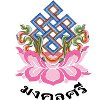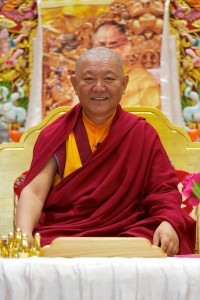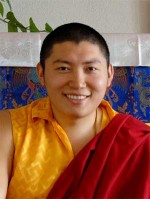Kyabgon Phakchok Rinpoche visit Jan 2011 Thailand – PHOTO ภาพถ่าย สมเด็จพักชก ริมโปเช มกราคม 2554
Photos from HH. Phakchok Rinpoche visit to Bangkok in January 2011
ภาพถ่ายจากงานบรรยายต่างๆในกรุงเทพฯ ของสมเด็จพักชก ริมโปเช ในเดือน มกราคม 2554

We will be updating new events soon.
Photos from HH. Phakchok Rinpoche visit to Bangkok in January 2011
ภาพถ่ายจากงานบรรยายต่างๆในกรุงเทพฯ ของสมเด็จพักชก ริมโปเช ในเดือน มกราคม 2554
 This February 2011 well known Tibetan meditation master, Abbot, professor and writer Ringu Tulku Rinpoche will be teaching at various venues around Thailand. Be sure not to miss this eminent teacher who is well known for his erudition and excellent communication in English.
This February 2011 well known Tibetan meditation master, Abbot, professor and writer Ringu Tulku Rinpoche will be teaching at various venues around Thailand. Be sure not to miss this eminent teacher who is well known for his erudition and excellent communication in English.
ริงกุ ทุลกุ ริมโปเช บรรยายธรรม 2-15 กุมภาพันธ์ Ringu Tulku Rinpoche Dharma talk 2-15 February
รายละเอียดเพิ่มเติม/additional information please check: http://littlebang.org/2011/01/13/ringu-tulku-rinpoche-bkk-feb-2011/
ริงกุ ทุลกุ รินโปเช เกิดปี 1952 ที่แคว้นขาม ในทิเบตตะวันออก ได้รับการสั่งสอนจากพระอาจารย์ที่ยิ่งใหญ่แห่งศตวรรษที่ 16 ได้แก่ HH the 16th Gyalwang Karmapa and HH Dilgo Khentse Rinpoche และได้ศึกษาที่สถาบันนัมกยัล ที่มีชื่อเสียงของโลกที่สนับสนุนให้นักวิจัยสนใจศิลปะและวัฒนธรรมทิเบต และที่มหาวิทยาลัยสัมปุระนานันด์สันสกฤต ท่านได้เดินทางไปสอนพระพุทธศาสนาและการนั่งสมาธิที่มหาวิทยาลัยและศูนย์ปฏิบัติธรรมต่างๆ ในยุโรป สหรัฐอเมริกา แคนาดา และเอเชีย ท่านยังแต่งหนังสือพระพุทธศาสนาทั้งในภาษาทิเบตและยุโรปอีกด้วย
Ringu Tulku Rinpoche is a Tibetan Buddhist Master of the Kagyu Order. He was trained in all schools of Tibetan Buddhism under many great masters including HH the 16th Gyalwang Karmapa and HH Dilgo Khentse Rinpoche. He took his formal education at Namgyal Institute of Tibetology, Sikkim and Sampurnananda Sanskrit University, Varanasi, India and has served as Tibetan Textbook Writer and Professor of Tibetan Studies in Sikkim for 25 years.
Since 1990 he has been travelling and teaching Buddhism and Meditation at Universities, Institutes and Buddhist Centers in Europe, USA, Canada, Australia and Asia. He also participates in various interfaith and Science and Buddhist dialogues. He authored several books on Buddhism as well as some children’s books both in Tibetan and European languages.
—
วันพุธที่ 2 กุมภาพันธ์ 2554, 17.30-20.00 น. ธรรมบรรยาย “ศิลปะแห่งความสุข” (มีแปลไทย)
ณ สวนโมกข์กรุงเทพ (หอจดหมายเหตุพุทธทาส อินทปัญโญ) ข้างสวนรถไฟ ใกล้สถานีรถไฟฟ้าบีทีเอส หมอชิต
แปลไทยโดย รศ.ดร. กฤษดาวรรณ หงศ์ลดารมภ์
Wednesday February 2nd, at 5:30pm – 8:00pm Dharma Talk on “The Art of Happiness” , talk will be in English with Thai translation
Venue: Buddhadasa Indapanno Archives (BIA), Suan Mok Krunthep, next to Mo-chit BTS station
วันพฤหัสบดีที่ 3 กุมภาพันธ์ 2554, 18.30-20.30 น. ธรรมบรรยาย “อริยะสัจจ์ ๔ – จากมุมมองของวัชรยาน” (ไม่มีแปลไทย)
ณ หอประชุมพุทธคยา อาคารอัมรินทร์พลาซ่า (สี่แยกราชประสงค์ – บีทีเอสชิดลม) ชั้น 22 ถ.เพลินจิต
Thursday February 3rd, at 6:30pm – 8:30pm Dharma Talk on “The Four Noble Truths – a Vajrayana Perspective” , talk will be in English only
Venue: DMG Bodhgaya Hall, Amarin Plaza 22nd floor (Chit Lom BTS)
วันจันทร์ที่ 7 กุมภาพันธ์ 2554, 19.00-21.30 น. ธรรมบรรยาย “คำแนะนำสู่การปฏิบัติ มหามุทรา” (ไม่มีแปลไทย)
ณ ศูนย์ชัมบาละ ถนน นราธิวาสฯ ซอย 15 ต้องจองล่วงหน้า http://bangkok.shambhala.info 02 788 7488
Monday February 7th, at 7:00pm – 9:00pm Dharma Talk on “An Introduction to Mahamudra” , talk will be in English only
Venue: Bangkok Shambhala group, Naratiwat rd., Soi 15, near Sathorn
Reservation required, please check http://bangkok.shambhala.info or call Jamie on: 02 788 7488
วันอังคารที่ 8 กุมภาพันธ์ 2554, 10.00-13.00 น. ธรรมบรรยาย “การปฏบัติสมาธิ สุญญตา (ความว่าง)” (ไม่มีแปลไทย)
ณ อาคาร เวลคัม ถนน นเรศ บางรัก ต้องจองล่วงหน้า 081 9855564
Tuesday February 8th, at 10:00am-1:00pm Dharma Talk and meditation on “Emptiness” , talk will be in English only
Venue: Ram’s place near Sam Yan MRT/Subway station in Bangkok followed by lunch together provided from 13.00 free of charge
Reservation required, call Ram 081 985 5564
วันอังคารที่ 8 กุมภาพันธ์ 2554, 18.30-20.30 น. ธรรมบรรยาย “ความโง่เขลาในสังสารวัฏ” (ไม่มีแปลไทย)
ณ ศูนย์เต้นรำ สุขุทวิทย์ ซอย 24
Tuesday February 8th , at 6:30pm – 8:30pm Dharma Talk on “The Foolishness of Samsara” , talk will be in English only
Venue: Dance Centre, Sukhumvit 24, Bangkok
วันพุธที่ 9 กุมภาพันธ์ 2554, 18.00-20.30 น. ธรรมบรรยาย “การก้าวพ้นจากความดึงดูดของสังสารวัฏ” (มีแปลไทย)
ณ หอประชุมพุทธคยา อาคารอัมรินทร์พลาซ่า (สี่แยกราชประสงค์ – บีทีเอสชิดลม) ชั้น 22 ถ.เพลินจิต
Wednesday 9th, at 6:00pm – 8:30pm “How to Transcend the attractions of Samsara” , talk will be in English with Thai translation
(6:00 pm Chanting, followed by talk, short meditation and offerings)
Venue: DMG Bodhgaya Hall, Amarin Plaza 22nd floor (Chit Lom BTS)
วันพฤหัสบดีที่ 10 กุมภาพันธ์ 2554, 19.00-21.00 น. ธรรมบรรยาย “ยานทั้งสามในพุทธศาสนา – ความแตกต่างที่เหมือนกัน” (ไม่มีแปลไทย)
ณ สยามสมาคม ใกล้สถานีรถไฟฟ้าบีทีเอส อโศก, สถานีรถไฟฟ้าใต้ดินสุขุมวิท (มีค่าใช้จ่าย 200 บาทสำหรับผู้ที่ไม่เป็นสมาชิกสมาคม)
Thursday 10th, 7:00pm – 9:00pm Dharma Talk on “The Three Buddhist Yanas – how they are different, yet all the same” , talk will be in English only
Venue: Siam Society, Asoke intersection near BTS/MRT Asoke station (200 baht cover charge for non-members of Siam Soc.)
วันอังคารที่ 15 กุมภาพันธ์ 2554, 18.30-20.30 น. ธรรมบรรยาย “การตายอย่างสงบ” (ไม่มีแปลไทย)
ณ โรงแรมอริยสมวิลล่า สุขุมวิทย์ ซอย 1
Tuesday 15th February, 6:30pm – 8:30pm Dharma Talk on “Dying Gracefully” , talk will be in English only
Venue: Ariyasom Villa Boutique Hotel
You can find more information here:
http://littlebang.org/2011/01/13/ringu-tulku-rinpoche-bkk-feb-2011/
 Greetings Everyone,
Greetings Everyone,
I hope you’ve all been well and happy. It’s almost midnight here in the foothills of the Himalayas and before the next day rolls in, I want to send you a little information about my whereabouts before this Guru Rinpoche day ends.
As mentioned in my last message, today is the first day of the pilgrimage and in order to mark the auspiciousness of this day, we are in Lumbini, the birthplace of Gautama Buddha. A pilgrimage is an important act of devotion and faith as it enables us to accumulate merit and purify our defilements and obscurations of the body, speech and mind by the power of the blessings of the sacred sites.
The Buddha said: “Monks, after my passing away, if all the sons and daughters of good family and the faithful, so long as they live, go to the four holy places, they should go and remember: here at Lumbini the enlightened one was born; here at Bodhgaya he attained enlightenment; here at Sarnath he turned twelve wheels of Dharma; and here at Kushinagar he entered parinirvana. Monks, after my passing away there will be activities such as circumambulation of these places and prostration to them….. a pilgrimage to them [the four places] will help to purify their previously accumulated negative karmas, even the five heinous actions….”
Along with the four holy places we’ll be visiting other sacred sites as well and during the entire pilgrimage, I’ll think of you all and make multiple aspirations for your happiness and wellbeing.
Before I say my goodbye, I want to remind you all to constantly practice bodhicitta based on a pure motivation defined by the union of both compassion and wisdom. As mentioned by Dza Patrul Rinpoche in his Words of My Perfect Teacher, bodhicitta can be viewed as having different levels. He mentions that the highest level is that of the shepherd, who makes sure that all his sheep arrive safely ahead of him and places their welfare before him. Next is the path of the boatman, who ferries his passengers across the river and then ferries himself back. And finally the lowest is that of the way of the king who primarily thinks of his own benefit but who recognizes that his benefit depends crucially on that of his kingdom and his subjects.
Thinking of all you on this GRD and wishing you all a very merry Christmas and a very happy New Year.
Sarva Mangalam,
Phakchok Rinpoche
 Dear All,
Dear All,
How have you all been? Happy and Healthy, I hope.
Today is again Guru Rinpoche Day, but a special one. It was during the 10th of this lunar month back in the 8th century, when Guru Rinpoche first arrived into Tibet on the invitation of King Trisong Detsen with the suggestion of the great Indian Buddhist master, Shantarakshita to subdue the local hostile negative forces and to consecrate the great monastery of Samye and to forever plant the unshakable seed of sacred Buddha dharma. He was thus known as Padmasambhava, the Lotus-Born Guru.
The 38th King or the 2nd of the Three Dharma Kings of Tibet, Trisong Detsen was indeed pivotal in introducing Buddhism to Tibet and hence a great king, yet a simple 11th century yogi states that there is simply no king like him. In a beautiful musical score titled “faith”, which a friend of mine gave me, I first heard about the above statement. In which, Sogyal Rinpoche recites the life and liberation of this extraordinary great yogi so eloquently that tears of devotion naturally outpours.
And it goes something like this: (verbatim)
Milarepa said, I am a king, yet no king like me I have such wealth Milarepa as you know was Tibet’s great saint, yogi and poet Who inspired millions of people But he spent the years in retreat in the humblest condition Wearing just a lounge cloth and eating nettles So much that his body became emaciated and became almost green
Yet he says, I am a king and yet no king like me I have such wealth I have the seven attributes that lead to enlightenment I have the eight noble path This is my wealth
My treasure house is filled with these riches I have the sky above as my castle I have the ground below as my state I am the happiest king in the world This is what Dilgo Khyentse Rinpoche use to say
Once when you have this view
All the delusory perception of samsara may rise in your mind And be like the sky When the rainbow appears in front of it You are not particularly flattered And when the clouds appear, when the dark clouds appear You are not particularly disappointed either There is a deep sense of contentment
And you chuckle from inside
As you see the façade of samsara and nirvana This view will keep you constantly amused Like a little smile bubbling away all the time Enjoy yourself, this self And you’ll be happy And I wish you that I wish you my deepest wish that you discover that for yourself This great treasure And you keep bubbling, bubbling, bubbling, bubbling and become contagious also
The lines above by Rinpoche are simple yet profound in their meaning. For those of you who need to refresh your memory on the seven attributes and the eight noble paths, here’s a brief overview:
The Seven Attributes: (Qualities)
Faith, discipline, generosity, learning, a sense of moral shame, a sense of ethical conscience to oneself, and intelligence.
The Noble Eightfold Path leading to the cessation of suffering:
Right view, intention, speech, action, livelihood, effort, mindfulness, and concentration.
Enjoy and have a wonderful day!
Sarva Mangalam,
Phakchok Rinpoche
 Dear Everyone,
Dear Everyone,
Today I thought I’d answer a question that I get asked quite frequently by students, the difference between the mind section and the wisdom section.
In the mind section, the key is noticing. It is extremely important to notice negative emotions. There is a difference between judgment and noticing. When you have judgment then your emotions arise because judgment comes with duality. When you notice the emotions don’t arise because you don’t follow the second thought, it is only recognition of a negative emotion, nothing more.
The wisdom section can be categorized into the appearance of wisdom and essential wisdom. The appearance of wisdom is free from duality, from bad and good. Don’t think that it is bad if you have a negative emotion and good when you have a positive emotion. After all whether if it’s positive or negative, it is just an emotion, which is impermanent. One must participate in pure perception. See all emotions, positive and negative with pure perception and hence neither good nor bad. Essential wisdom on the other hand involves less judgment and without engaging. Not clinging onto the emotions, not holding onto the emotions, just letting them be. If you hold onto the emotions once they arise and do not let them dissolve naturally then that is not essential wisdom. Notice them and let them be. They will dissolve on their own, naturally. This is important to understand and practice. This is the essential teaching.
Right now I am in the very south of Brazil, near Port Alegra at Khandro Ling. Today with the sangha here we auspiciously performed Guru Rinpoche’s Shower of Blessing tsok offering. During the tsok offering I thought of you all and had you all in my heart, praying for your long life, good health, and prosperity.
Sarva Mangalam,
Phakchok Rinpoche